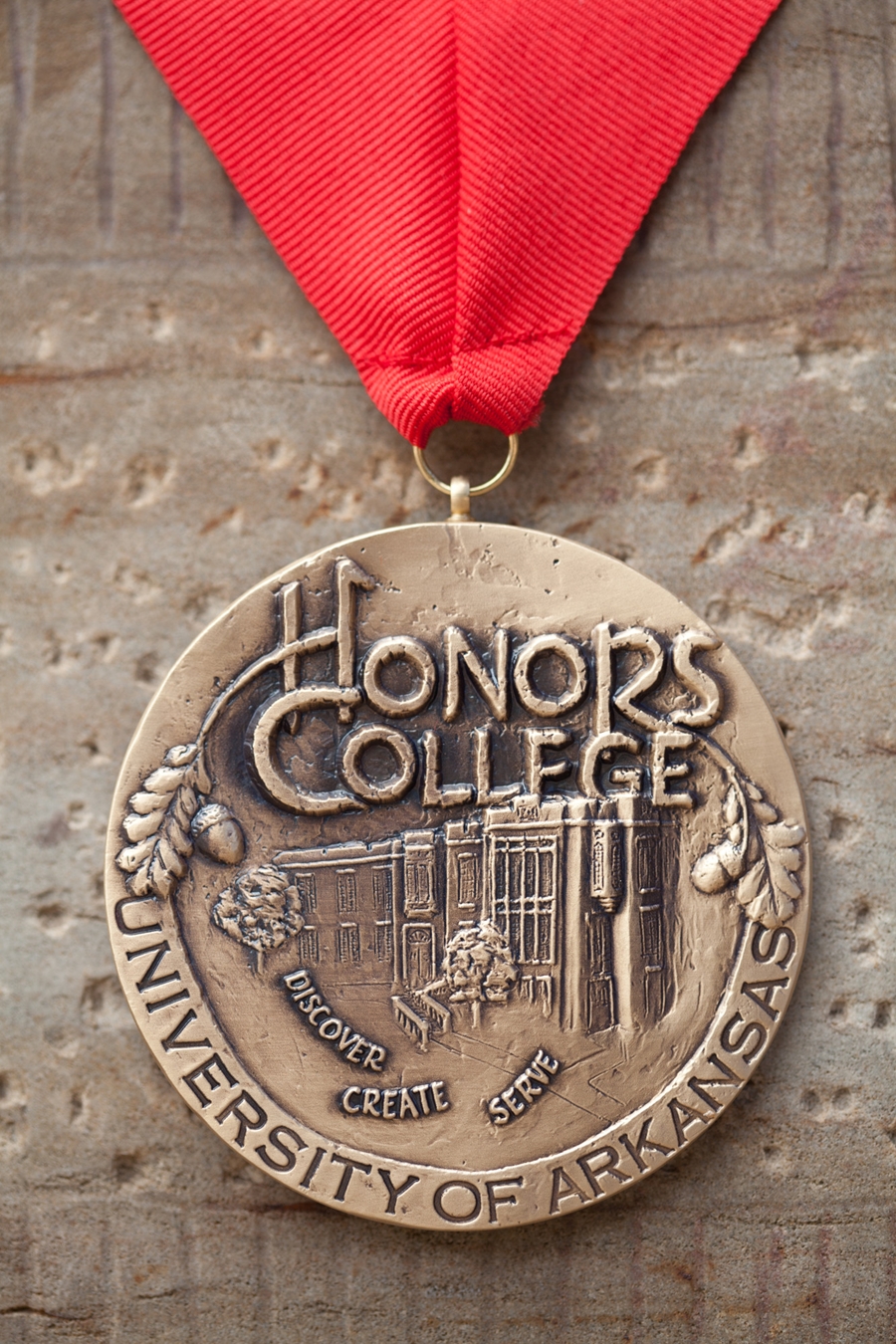
FAYETTEVILLE, Ark. — The Honors College will recognize six faculty members at the annual Honors College Faculty Reception on Tuesday, Nov. 7.
The awards are in two categories, the Distinguished Faculty Award and the Distinguished Leadership Award.
“Our honors faculty work extremely hard to support our students, putting in many extra hours to mentor research, write letters of recommendation, and prepare them for the next steps beyond the degree,” said Honors College Dean Lynda Coon. “These six have set the bar especially high for teaching, research, mentoring and leadership. We are deeply grateful to them, and look forward to recognizing their contributions next week.”
Dean Coon will present a bronze medallion to this year’s Distinguished Faculty Award and Distinguished Leadership Award recipients, who will be introduced by the deans of their respective colleges. Each winner also will receive $1,000 in academic funding.
Distinguished Faculty Award
Recipients of the Honors College Distinguished Faculty Award:
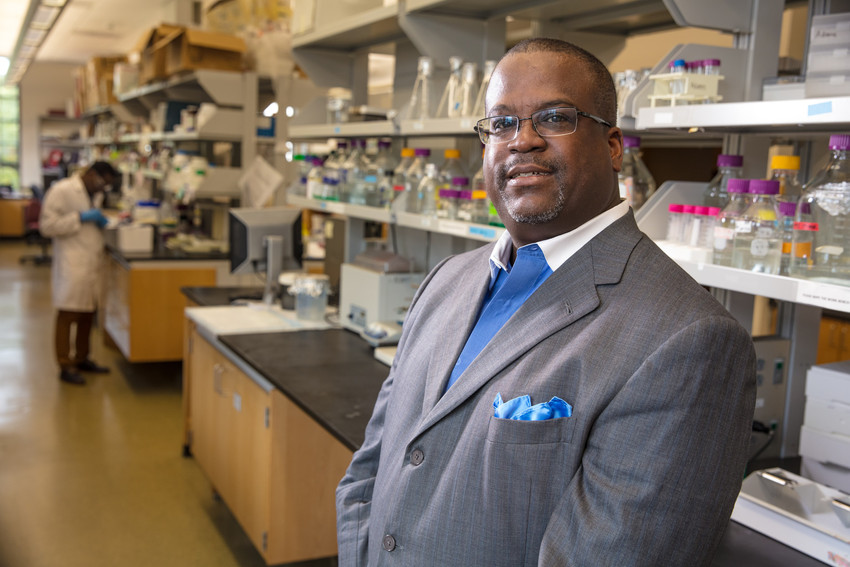
Paul Adams, associate professor of chemistry and biochemistry, and cellular and molecular biology, J. William Fulbright College of Arts and Sciences.
Adams studies Ras-related proteins, which have been identified in nearly one-third of cancer types. His research has focused on identifying potential small molecule drug targets that would alter the Ras proteins that facilitate abnormal cell growth. Adams has mentored more than 50 honors students in his laboratory since arriving at the university in 2007 and has had an honors student co-author a paper published in Biochemistry, listed among the top 100 most influential journals in biology and medicine over the last 100 years.
He estimates that 15 of his students have received SURF and Honors College research grant funding. His greatest joy comes from helping his students master the critical thought process, so that they can use what they’ve learned in the classroom to ask questions that haven’t been asked before.
He has received more than $1.45 million in funding from the National Science Foundation, the National Institutes of Health, the Arkansas Biosciences Institute and the Winthrop P. Rockefeller Cancer Institute at UAMS.
He was selected to receive the 2013 Presidential Award for Excellence in STEM Research and Mentoring by the National Organization for the Professional Advancement of Black Chemists and Chemical Engineers. Adams also received the Lifetime Achievement Award in Research and Teaching from the Northwest Arkansas Democratic Black Caucus in 2015.

Amy Farmer, University Professor of economics and holds the Margaret Gerig and R.S. Martin Jr. Chair in Business, Sam M. Walton College of Business.
Farmer earned her first degree in mathematics and applies game theory principles in her economics research, which most recently has focused on pre-trial negotiations and strategic bargaining. She teaches a Walton College colloquium titled “The Economics of Life” that emphasizes the role of thinking like an economist in issues covering every aspect of life, from fertility to death and everything in between.
In addition to teaching and mentoring numerous honors theses, for over a decade Farmer has been leading students on summer study abroad programs, doing experiential service work in developing communities in Belize, Mozambique and Vietnam. These programs allow students to implement projects in the area of their academic disciplines. She is now offering longer-term summer community development projects through which students can complete an experiential, service-based theses.
She previously received the 2016 Excellence in Diversity Award from Walton College and the 2016 Hoyt H. Purvis Award for Service in International Education from the Graduate School and International Education.

Laurence Hare, associate professor of history and holds the Cleveland C. Burton Professorship in International Studies, Fulbright College.
Hare has been active in honors programs since 2011, having served on the Fulbright Honors Council and teaching nearly a dozen separate honors courses. He is a veteran of the Honors Humanities Program (H2P) and was part of the first team of professors that designed the Honors Passport program, which has included study abroad in Central Europe and Peru. He has also taught a number of honors colloquia on such topics as “Heritage and Nation” and “The Intellectual Origins of National Socialism.”
He was the recipient of an interdisciplinary honors colloquium grant that produced two team-taught courses on “Wagner and the World” and “Opera, Nations, and Empires.”
Hare has mentored dozens of honors students both as director of undergraduate studies in the Department of History and later as director of the International and European Studies programs in Fulbright College. He has supervised 19 honors theses, and his students have won four Student Undergraduate Research Fellowships (SURF), for which Hare was recognized with the Faculty Gold Medal from the Office of Nationally Competitive Awards in 2014.
His students’ work has been published in both The International Social Science Review and The Ozark Historical Review. Hare holds both the Master Teacher (2014) and Outstanding Advisor (2016) awards from the Fulbright College of Arts and Sciences, and is a member of the University of Arkansas Teaching Academy.
Distinguished Leadership Award
Recipients of the Honors College Distinguished Leadership Award:
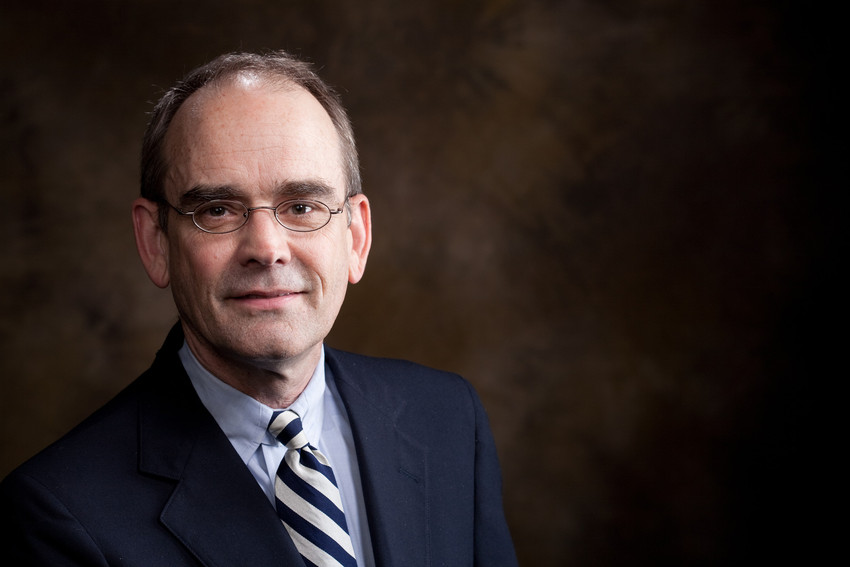
Sidney Burris, professor of English, Fulbright College.
Burris served as director of the Fulbright College Honors Program for 23 years, boosting the 61-year-old program with innovative curricula and changing the lives of thousands of students. Burris began his career at the University of Arkansas in 1986, and took charge of the honors program in 1993.
In 1995, thanks to a National Endowment for the Humanities grant, Burris, along with directors of the college’s humanities program, helped to develop, teach and administer H2P, a signature course in the honors curriculum. He taught H2P for 14 years. Burris also helped to grow the Sturgis Fellowship Program, working with the college’s development office to shepherd more than $16 million in gifts from the Sturgis family, and to distribute nearly $300,000 in grant awards and fellowships each year.
In 2000, members of the central administration asked Burris to “imagine” an Honors College for the University of Arkansas. He sketched out several scenarios, and two years later, many of those plans came to fruition when the University of Arkansas received a $300 million gift from the Walton Family Charitable Support Foundation. This generous gift created the Honors College and a large portion of the gift allowed the new college to endow fellowships and scholarships to recruit top students, and grants that support research, study abroad and service learning.
In 2007, Burris and colleague Geshe Thupten Dorjee founded the TEXT Program, a study abroad progam where students are interviewing Tibetan refugees living in exile in India and compiling an oral history of their experiences and memories. The success of The TEXT Program, which has won several awards including the John A. White Award for Faculty-Student Collaboration and the ESPNU SEC Stories of Success Award, was part of the reason that the Dalai Lama accepted the university's invitation to visit campus in 2011.
Burris has previously published two books of poems, a book of literary criticism, and a number of critical and personal essays, which have won several awards. He specializes in 20th-century literature and creative nonfiction. He also regularly offers classes in human-rights literature and co-teaches the history of nonviolence course with Geshe Thupten Dorjee.
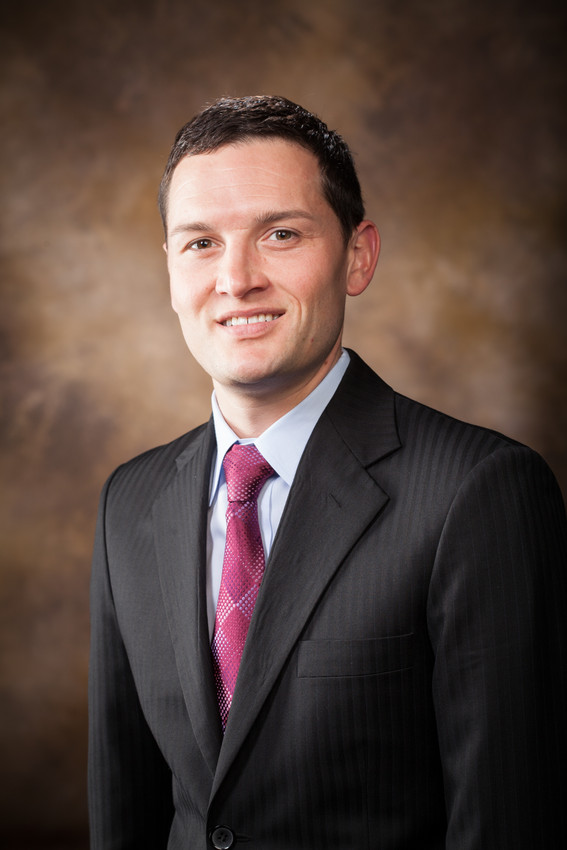
Bryan Hill, assistant dean for student recruitment and diversity, honors and international programs, College of Engineering.
Hill has more than 15 years of experience in engineering student recruitment, retention, diversity initiatives, and K-12 outreach programs. Since he became assistant dean in 2009, the College of Engineering’s undergraduate enrollment has increased 92 percent, female enrollment has increased 157 percent and minority enrollment 152 percent. Overall honors enrollment in engineering has increased by nearly 50 percent since 2009.
Hill also has served as assistant director of the College of Engineering Honors Program since 2009 and is director of UAteach, a secondary math and science teacher education program. In addition, he was instrumental in starting the Pre-Academic Program for SENACYT Scholars, a five-year program designed to provide low-income, rural Panamanian students a pipeline to college graduation. Hill is principal investigator on STEM educational and outreach grants totaling $6.6 million.
Hill mentored the inaugural interdisciplinary team of students who submitted the first joint honors thesis in the College of Engineering. He has also embarked on an ambitious curriculum mapping plan to provide engineering students an eight-semester degree plan that includes a semester at a partner institution abroad. In the first year of these efforts, the number of engineering students spending a semester abroad has increased fivefold.
In 2015 Hill was recognized as one of the Top 15 Researchers on the U of A campus. He also received the 2017 Collis R. Geren Award for Excellence in Graduate Education and was a finalist for the Global Engineering Deans Council Airbus Diversity Award in 2014.
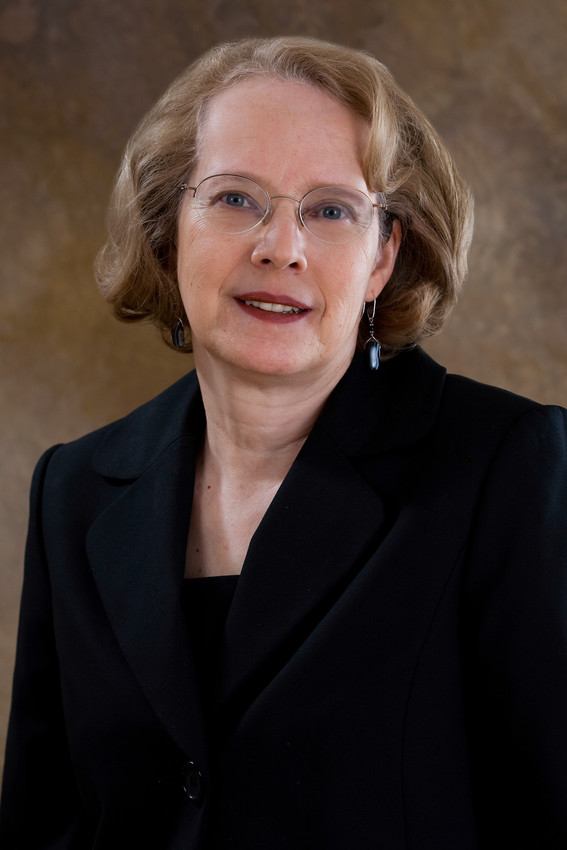
Suzanne McCray, associate professor of higher education, College of Education and Health Professions, vice provost for enrollment services, and director of the Office of Nationally Competitive Awards.
McCray's professional career at the University of Arkansas began with the Honors Studies Program in J. William Fulbright College of Arts and Sciences. In 2002 with the creation of the Honors College, she became its associate dean and in 2008-2009 served as the interim dean before becoming the vice provost for enrollment the following year.
As the director of the Office of Nationally Competitive Awards, which she founded in 1998, McCray has advised hundreds of University of Arkansas students concerning scholarship and graduate school applications, holding more than 300 student meetings each year. She has personally advised all 52 of the University’s Goldwater Scholars; all nine Udall Scholars; all four Gates Cambridge Scholars; 17 of 23 Truman Scholars; 4 of 7 Marshall Scholars; 1 of 10 Rhodes Scholars; and a Schwarzman Scholar as well as many NSF Graduate Research Fellows and Fulbright Scholars.
For three years, she served on the national program review committee for the Coca-Cola Scholarship, and she is currently completing a fourth term on the national selection committee for the Morris Udall Scholarship and her third on the Critical Language Scholarship review.
She organized The Truman and Marshall Scholarships: Breaking the Code a conference that brought advisors as well as Truman and Marshall leaders from across the country to the University of Arkansas campus in 1999. This meeting led to the founding of the National Association of Fellowships Advisors, which now includes more than 1,000 members. She served as its vice president from 2001-2003 and its president from 2003-2005. In 2005 McCray edited Beyond Winning: National Scholarship Competitions and the Student Experience, a collection of essays written by foundation heads and scholarship advisors. That collection has been followed by five additional volumes, the most recent being Roads Less Traveled and other Perspectives on Nationally Competitive Scholarships (2017). She has written various articles and presented on the topic as well.
McCray taught the Honors Humanities Project for 15 years and has taught honors colloquia on topics such as Southern Women Writers, Southern Memoir and Contemporary Southern Writers. Next spring she will teach the new Honors College Catapult course, which prepares honors students to apply for jobs, graduate and professional schools and nationally competitive awards.
About the Honors College: The University of Arkansas Honors College was established in 2002 and unites the university’s top undergraduate students and professors in a learning environment characterized by discovery, creativity and service. Each year the Honors College awards up to 90 freshman fellowships that provide $70,000 over four years, and more than $1 million in undergraduate research and study abroad grants. The Honors College is nationally recognized for the high caliber of students it admits and graduates. Honors students enjoy small, in-depth classes, and programs are offered in all disciplines, tailored to students’ academic interests, with interdisciplinary collaborations encouraged. Fifty percent of Honors College graduates have studied abroad – three times the national average – and one hundred percent of Honors College graduates have engaged in mentored research.
About the University of Arkansas: The University of Arkansas provides an internationally competitive education for undergraduate and graduate students in more than 200 academic programs. The university contributes new knowledge, economic development, basic and applied research, and creative activity while also providing service to academic and professional disciplines. The Carnegie Foundation classifies the University of Arkansas among only 2 percent of universities in America that have the highest level of research activity. U.S. News & World Report ranks the University of Arkansas among its top American public research universities. Founded in 1871, the University of Arkansas comprises 10 colleges and schools and maintains a low student-to-faculty ratio that promotes personal attention and close mentoring.
Topics
Contacts
Lynda Coon, dean
Honors College
479-575-7678,
Kendall Curlee, director of communications
Honors College
479-575-2024,